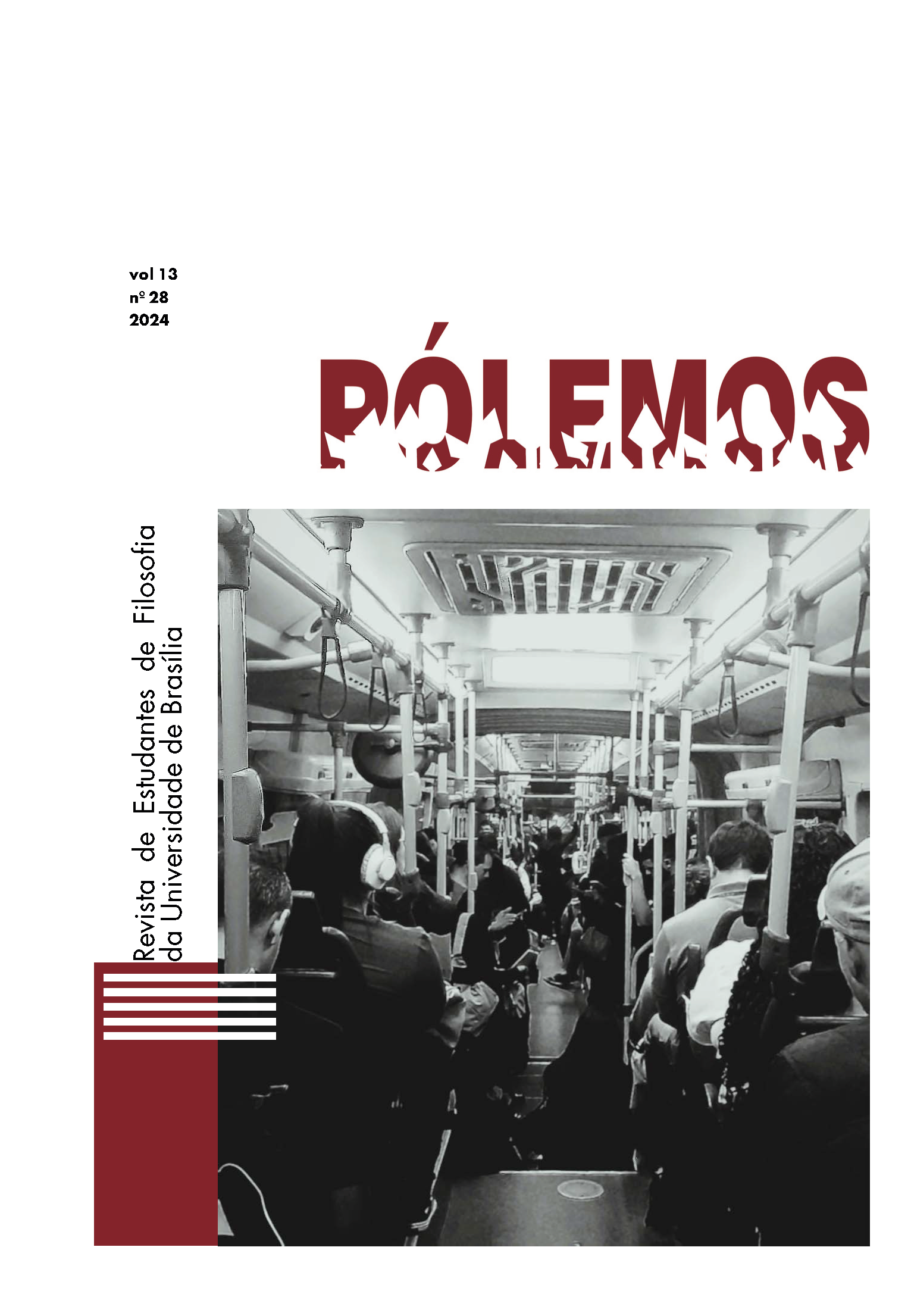ON CARNAP'S CRITERION OF EMPIRICAL SIGNIFICANCE IN LIGHT OF KAPLAN'S CRITIQUE
DOI:
https://doi.org/10.26512/pl.v13i28.54059Keywords:
Empirical Meaningfulness. Carnap. Kaplan. Structural-Methodological Approach.Abstract
In this paper, I present Carnap's proposal regarding a possible criterion for empirical significance. We demonstrate that Carnap's proposal consists of a partially semantic interpretation of a formal system that would represent the total language of science. Furthermore, we consider Kaplan's critique of the thinker's structural-methodological approach. Our objective, therefore, is merely to raise considerations about Carnap's criterion of empirical significance in light of Kaplan's reservations. Thus, we divide the article into three sections. Initially, we outline the philosophical debate on empirical significance, then we present Carnap's proposal. Finally, we expose Kaplan's considerations and their strength in Carnap's thesis. We argue, in conclusion, that Kaplan's criticisms are somewhat unintuitive and can be circumvented.
Downloads
References
ANDERSON, C. David Kaplan: Formal Aspects of His Work. In: ALMOG, Joseph; LEONARDI, P (Eds.). The Philosophy of David Kaplan. Nova Iorque: Oxford University press, 2009, pp. 11-24.
ANDREAS, H. A modal view of the semantics of theoretical sentences. Synthese, v. 174, n. 3, p. 367–383, 2010. DOI: https://doi.org/10.1007/s11229-009-9458-3.
ANDREAS, H; SCHIEMER, G. Modal Structuralism with Theoretical Terms. Erkenntnis, v. 88, n. 2, p. 721-745, 2021. DOI: https://doi.org/10.1007/s10670-021-00378-w.
AYER, A. Language, Truth and Logic. 1. ed. Londres: Penguin Books, 1971.
AYER, A. Language, Truth, and Logic. 2. ed. New York: Dover Publications Inc., 1946.
BELNAP, N. On rigorous definitions. Philosophical Studies, v. 72, p. 115–146, 1993. DOI: https://doi.org/10.1007/.
CARNAP, R. Intellectual Autobiography. In: SCHILPP, P. A. (Ed.). The philosophy of Rudolf Carnap. LaSalle, IL: Open Court, 1963a, pp. 3–86.
CARNAP, R. Replies and systematic expositions. In: SCHILPP, P. A. (Ed.). The philosophy of Rudolf Carnap. LaSalle, IL: Open Court, 1963b, pp. 859–1013.
CARNAP, R. The elimination of metaphysics through logical analysis of language. In: AYER, A. (Org.). Logical Positivism. New York: Free Press, 1959, pp. 60-81.
CARNAP, R. Testability and meaning. Philosophy of Science, v. 3, n. 4, 1936, p. 419–471. DOI: https://doi.org/10.1086/286432.
CARNAP, R. Testability and meaning–continued. Philosophy of Science, v. 4, n. 1, 1937, p. 1–40. DOI: https://doi.org/10.1086/286443.
Carnap, R. Empiricism, Semantics and Ontology. Revue Internationale de Philosophie, v. 4, n. 11, 1950, p. 20-40. Disponível em: http://www.jstor.org/stable/23932367. Acesso em: 14 de out. 2024.
CHURCH, A. Review of the Second Edition of Language, Truth and Logic. Journal of Symbolic Logic, v. 14, p. 52–53, 1949. DOI: https://doi.org/10.2307/2268980.
DEMOPOULOS, W. Carnap on the rational reconstruction of scientific theories. In: FRIEDMAN, M.; CREATH, R. (Eds.). The Cambridge Companion to Carnap. Cambridge: Cambridge University Press, 2007, pp. 248–272.
EVANS, M. The relativity of simultaneity: a critical analysis. Dialectica, v. 16, p. 61-82, 1962. DOI: https://doi.org/10.1111/j.1746-8361.1962.tb01671.x.
FRIEDMAN, M. Carnap on theoretical terms: structuralism without metaphysics. Synthese, v. 180, n. 2, p. 249–263, 2011. DOI: https://doi.org/10.1007/s11229-009-9604-y.
GLYMOUR, C. Theory and Evidence. Princeton: Princeton University Press, 1980.
HEMPEL, C. Problems and changes in the empiricist criterion of meaning. Revue Internationale de Philosophie, v. 41, n. 11, p. 41-63, 1950. Disponível em: http://www.jstor.org/stable/23932368. Acesso em: 14 de out. 2024.
HEMPEL, C. Aspects of Scientific Explanation and other Essays in the Philosophy of Science. The Free Press, 1965.
LEWIS, D. Ayer's First Empiricist Criterion of Meaning: Why Does it Fail?. Analysis, v. 48, n. 1, p. 1-3, 1988. DOI: https://doi.org/10.2307/3328286.
LUTZ, S. Carnap on Empirical Significance. Synthese, v. 194, n. 1, p. 217-252, 2017. DOI: https://doi.org/10.1007/s11229-014-0561-8.
LUTZ, S. Criteria of empirical significance. Foundations, relations, applications, quaestiones infinitae. Publications of the Zeno Institute of Philosophy, vol. LXX. Utrecht: University Utrecht, 2012.
NIDDITCH, P. A defence of Ayer's verifiability principle against church's criticism. Mind, v. 70, n. 277, p. 88-89, 1961. DOI: https://doi.org/10.1093/mind/LXX.277.88.
POPPER, K. A lógica da investigação científica. In.: Mariconda, P. (org.). Os pensadores. São Paulo: Abril S. A Cultural e Industrial, 1975. XLIV, pp. 263-384.
PSILLOS, S. Ramsey’s Ramsey-sentences. In: GALAVOTTI, M. C. (Eds.). Cambridge and Vienna. Vienna Circle Institute Yearbook [2004], vol. 12. Springer, Dordrecht, 2006, pp. 67-90.
RAMSEY, F. Theories. In: BRAITHWAITE, B. (Ed.). The Foundations of Mathematics and Other Logical Essays. Routledge Kegan & Paul, 1931, pp. 212-236.
ROZEBOOM, W. A Note on Carnap’s Meaning Criterion. Philosophical Studies: An International Journal for Philosophy in the Analytic Tradition, v. 11, n. 3, p. 33–38, 1960. DOI: https://doi.org/10.1007/BF01324399.
SHILICK, M. Sentido e Verificação. In.: Mariconda, P. (org.). Os pensadores. São Paulo: Abril S. A Cultural e Industrial, 1975, XLIV, pp. 89-116.
WÓJCICKI, R. Semantical Criteria of Empirical Meaningfulness. Studia Logica: An International Journal for Symbolic Logic, v. 19, p. 75–109, 1966. DOI: https://doi.org/10.1007/BF02186728.
Downloads
Published
How to Cite
Issue
Section
License
Copyright (c) 2024 PÓLEMOS – Revista de Estudantes de Filosofia da Universidade de Brasília

This work is licensed under a Creative Commons Attribution-NonCommercial-NoDerivatives 4.0 International License.
Todos os trabalhos que forem aceitos para publicação, após o devido processo avaliativo, serão publicados sob uma licença Creative Commons, na modalidade Attribution-NonCommercial-NoDerivatives 4.0 International Public License (CC BY-NC-ND 4.0). Esta licença permite que qualquer pessoa copie e distribua a obra total e derivadas criadas a partir dela, desde que seja dado crédito (atribuição) ao autor / Ã autora / aos autores / às autoras.


